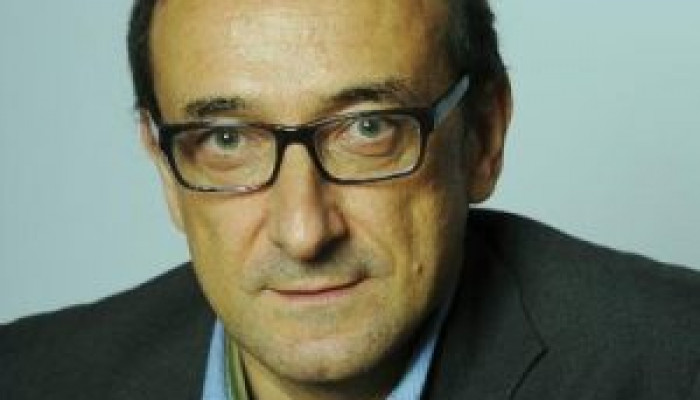Presidential Address (2023-2)

Dear colleagues,
I would like to begin by congratulating all the participants in the Annual ESC Conference, held in Florence (Italy) from September 6th to 9th. We reached a milestone with regard to the number of people registered, 2150, far above the figure achieved in 2022 at the Conference in Malaga, with 1850 participants. Notably, we all have to congratulate and be grateful to Barbara Gualco and the local team, who did difficult and excellent work to ensure that everything worked optimally. Beyond the plenary sessions, a total of 1882 panel communications were presented, 163 posters were exposed, and the six ESC Awards were given. In addition, nine fellowships were granted to attend the Conference, but only seven of the criminologists who received them managed to join us in Florence. Three of them were special fellowships for criminologists affected by the war in Ukraine.
I also would like to thank Catrien Bijleveld and Fernando Miró-Llinares, who have completed their mandate as members of the Board, and to welcome Michele Burman as President-Elect and Anna di Ronco as the new at-large board member.
This year, European criminologists will continue to be very much concerned about the war in Ukraine, and I would like to recall the Declaration of the Board against this unjust catastrophe that has devastating consequences for many adults and children (http://www.esc-eurocrim.org/index.php/activities/news). In addition to the loss of human lives and the gross violations of human rights, it also has dramatic consequences on the cultural and economic development of the affected countries, preventing Universities from carrying out their activities and criminologists from joining our conferences. Since October 7th, new concerns have been added to the current ones due to the horrific war in Palestine. The conflict occurs outside European borders but involves populations strongly connected to Europe and European politics. Research on war crimes and atrocity crimes is nowadays even more a matter of interest for criminologists. The emergency of studies and initiatives based on transitional justice will also be challenging.
Among the main achievements of the ESC, I also want to highlight the improvements in the European Journal of Criminology. It is worth mentioning the work conducted by Kyle Treiber as Chief editor, who has made it possible to publish, from January to August 2023, 84 articles (1740 pages) and to reduce the backlog and the time to make decisions on the manuscripts, although it’s not easy to engage with reviewers. The EJC will support a larger special issue, to be published soon, with 12 papers on Crime and War in Ukraine: Criminological, Legal, and Institutional Perspectives.
A new and exciting project will be a relevant element among the activities of the ESC for the next year: the Summer School, with its first edition planned for 2024 in Switzerland. The University of Lausanne has accepted the project submitted by the ESC Board, and the School will take place on the campus of that university by Leman Lake. I hope that the idea to involve the winners of the ESC Awards as teachers and trainers in various criminological fields will be stimulating for students and target participants, who will have the opportunity to develop theoretical knowledge, improve practical skills and network with people from different countries.
Next year, European Criminology will move to the East. The 24th Annual Conference will take place in Bucharest, Romania, from September 10th to 14th. This will be an excellent opportunity to compensate for the existing imbalance between Eastern and Western countries regarding the number of participants in previous annual conferences. A local team led by Andra Roxana Trandafir is working with the Board to prepare the program.
Finally, let me introduce in this presidential message some words about my recent experience as a member and coordinator of the Commission on Sexual Abuses in the Catholic Church, created by the Spanish Ombudsman to fulfil an order of the State’s Parliament. A final Report was presented to the President of the Chamber of Deputies on October 28th, which can be found on the Ombudsman’s website. This is an achievement of international interest, since this report has been preceded by others in different European countries, such as Ireland, Belgium, Netherlands, Austria, Germany, United Kingdom, France and Portugal. It invites an international comparison, even though the studies and methods have not been based on a standard model.
The Spanish Report has been based on data collected in a 2023 survey covering a sample of the Spanish adult population (8.013 people). The survey showed that 12,6% of interviewees were victims of sexual abuse during their childhood (before 18 years old). Child sexual abuse in religious environments has affected 1,13% of adults, and the percentage of adults who were victims of abuse perpetrated by a Catholic priest or a member of a religious order is 0,6%. This figure is similar to the survey results in France (Report Sauvé, 2021). Prevalence is greater among men than among women, similar to all other countries where different studies have been conducted. It is also lower among young people, indicating the decrease in the trend after the 1960s and 1970s when most of the abuses occurred.
Beyond the apparent main responsibility of the Catholic Church, the Spanish Report has focused its recommendations on the duties of public institutions. Compensations must be determined within a regulated procedure by a special body in which, according to the Belgian Centre for Arbitration, the State and the Church should participate. This model should operate in accordance with the principles of restorative justice but with adjudicatory powers. The obligation of the State is founded on European standards. A sentence of the European Court of Human Rights (O’Keeffe v. Ireland, 28th January, 2014) held that the respondent State had to pay the applicant, an Irish woman who was sexually abused by a teacher at a Catholic School when she was a child, due to a violation of Articles 3 and 13 of the European Convention for the Protection of Human Rights. Moreover, the Court of Justice of the European Union, in its landmark decision of July 16th, 2020, held that the Italian authorities did not provide enough compensation to a victim of a sexual crime. The Court set out a framework for the interpretation of Article 12 of the European Directive of 2004 for compensation of victims of crime and concluded that amounts should not be purely symbolic or manifestly insufficient and should compensate, to an appropriate extent, the suffering of the victims. This is a basis from which a firmer commitment must be demanded from European States to provide reparation to the victims of sexual crimes, particularly those committed in institutions with children as victims.
